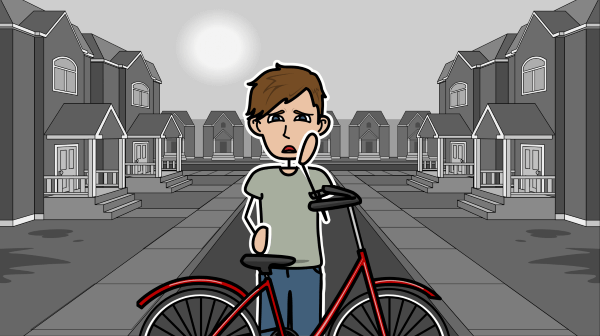READ the following extracts that describe industrial scenes:
It was a town of red brick, or it would have been red if the smoke and the ashes had allowed it. It was a town of machinery and tall chimneys, out of which interminable serpents of smoke trailed themselves forever and ever, and never got uncoiled. It had a black canal in it and a river that ran purple with ill-smelling dye, and vast piles of buildings full of windows where there was a rattling and a trembling all day long, and where the piston of the stream engine worked monotonously up and down like an elephant in a state of melancholy madness. ( extract taken from Hard Times)
Coal-dust and factory smoke darkened the shrinking leaves, and coarse rank flowers; where the struggling vegetation sickened and sank under the hot breath of the kiln and fumace, making them by its presence seem yet more blighted and unwholesome than the town itself. They came by slow degrees upon a cheerless region, where not a blade of grass was seen to grow; where not a bud put forth its promise in the spring ( extract taken from Martin Chuzzlewit)
THESE ARE TWO examples , but there could have been more, where we can see an accurate description of industrial life in the 19th century. Analyze both extracts, look for similes, metaphores, ideas about industrialization and Dicken´s attitude towards it. What kind of stories may unfold in these places? How might people´s life be affected?
READ the following extracts from OLIVER TWIST:
The parish authorities decided that Oliver should be dispatched to a workhouse some three miles off, where twenty or thirty other juvenile offenders against the poor laws rolled about the floor all day, without the inconvenience of too much food clothing under the parental superintendence of an elderly female.
In this extract we get to know how and why Oliver ended up in a workhouse. How do you connect this extract with the chaper we have read in class? What´s your opinion about the parish authorities and the idea they had about these junevile offenders?
Once Oliver is sent out of the workhouse, as we have read in chapter 2, and after several adventures arrives in London.
READ about his first impressions when in London:
A dirtier or more wretched place he had never seen. The street was very narrow and muddy, and the air was impregnated with filthy odours. There were a good many small shops but the only stock in trade appeared to be heaps of children, who even at that time of night were crawling in and out at the doors or screaming from the inside.
By reading this and now you know about Artful Dodger and Fagin, can we connect the ideas presented in this paragraph with Oliver´s criminal life?
DAVID COPPERFIELD himself also remembers his sufferings as a child ( remember what we have read about his school days....). In this extract for example he remembers when working in a wharehouse:
It was a crazy old house abutting on the water when the tide was in, and on the mud when the tide was out and literally overrun with rats.... How much I suffered...It is as I have said already utterly beyond my power to tell. But I kept my own counsel and I did my work.
What are your impressions? Is this possible today? In which ways is Dickens effective with these descriptions / memories / thoughts ?




